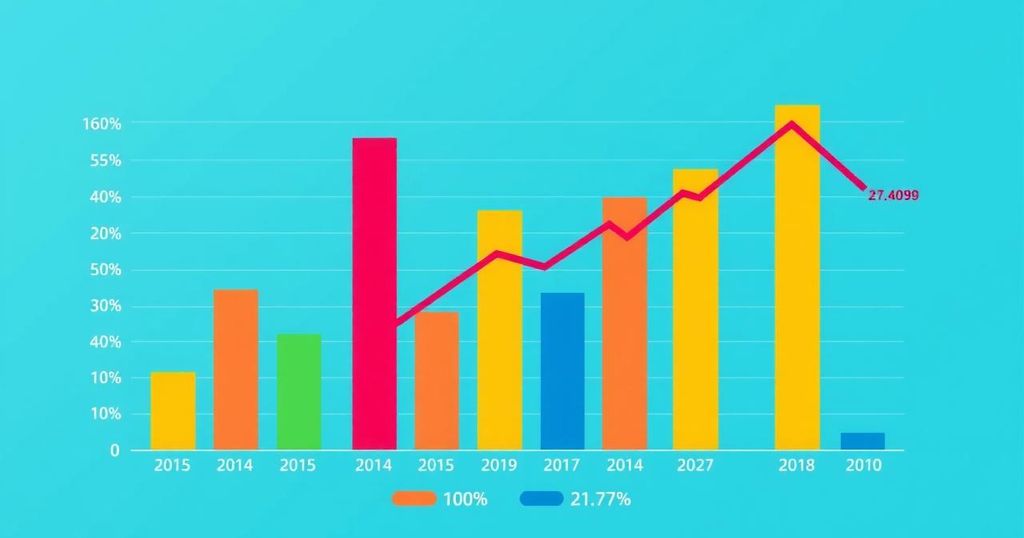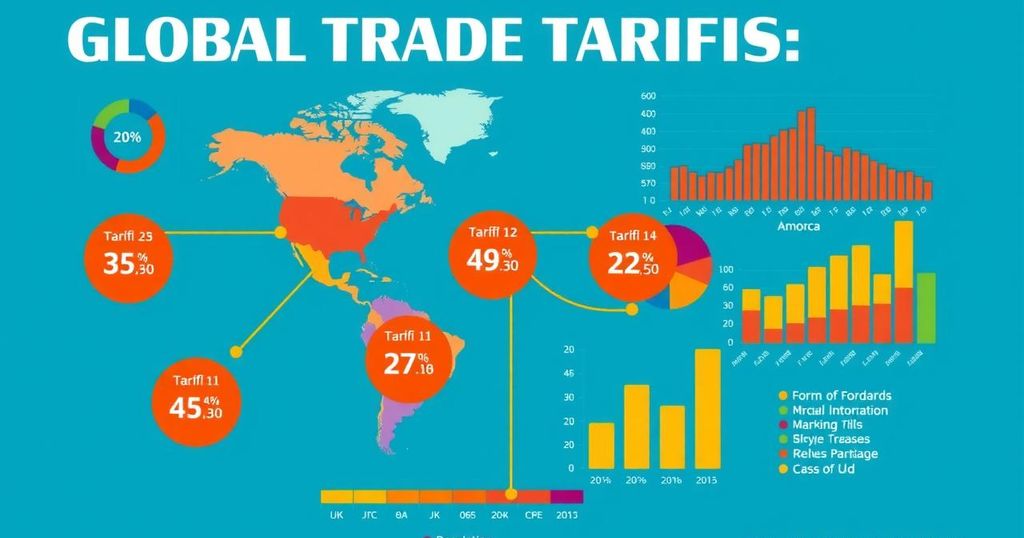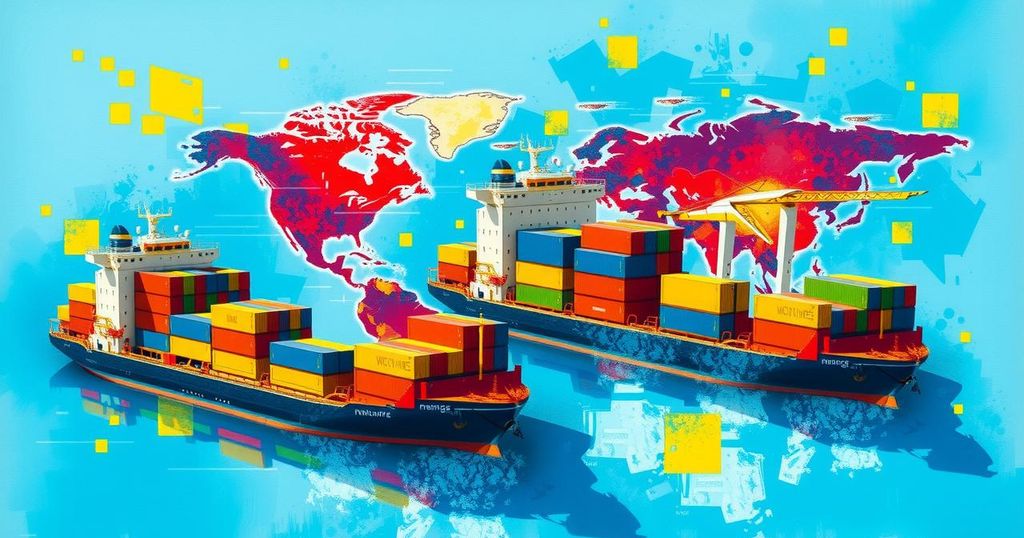Donald Trump has canceled Chevron’s oil license for operations in Venezuela, citing insufficient electoral reforms by President Maduro. The termination affects Chevron’s ability to export crude oil, which has significantly contributed to Venezuela’s economy. Trump’s decision aligns with a broader strategy of tightening sanctions against the Maduro government, amid ongoing political disputes regarding electoral legitimacy.
Former President Donald Trump has withdrawn Chevron’s oil operations license in Venezuela, asserting that the company could not operate due to a lack of electoral reforms in the country. Although Trump did not specifically name Chevron in his statements, his remarks signal a significant tightening of sanctions since this license was previously granted on November 26, 2022. Venezuelan Vice President Delcy Rodriguez criticized the decision, claiming it exacerbates the migration crisis in Venezuela.
Chevron plays a crucial role in Venezuela’s economy, exporting around 240,000 barrels of oil daily, constituting over 25% of the nation’s oil output. The revocation of the license means that Chevron will be unable to continue its oil exports, and any attempts by Venezuela’s state oil company, PDVSA, to take over existing operations face U.S. sanctions, complicating U.S. refiners’ ability to procure Venezuelan crude.
During his presidency, Trump adopted a stringent sanctions policy aimed at Venezuela, particularly its energy sector. While the Biden administration had initially relaxed some sanctions to promote democratic elections, such measures were later reinstated when President Biden deemed that President Maduro failed to uphold his electoral promises. Notably, Chevron retained its license along with authorizations granted to other foreign oil companies even after sanctions were tightened.
The revenue from Chevron’s operations is vital for Maduro’s government, with estimates suggesting that taxes and royalties could contribute between $2.1 billion and $3.2 billion annually. Furthermore, U.S. Energy Secretary Chris Wright remarked that the U.S. remains the largest oil producer, deeming Venezuelan oil interruptions as negligible for global supply.
The issue also highlights the broader political situation in Venezuela, where claims of electoral irregularities invalidate Maduro’s leadership legitimacy. Opposition leader Maria Corina Machado expressed that Trump’s actions demonstrate support for the Venezuelan people and democracy, viewing the termination of Chevron’s license as a step towards prosperity for both nations. As uncertainty looms regarding the current cargoes en route to U.S. ports, the consequences for Venezuela’s oil economy remain deeply challenged by external pressures.
In the context of economic recovery, Chevron previously aimed to recover approximately $1.7 billion by the end of 2024 through its operations, estimating an output of 200,000 barrels per day. However, the recent changes cast doubts on these projections and the company’s future in the region, amid potential layoffs of up to 20% of its global workforce by 2026 as part of a cost-cutting initiative.
The revocation of Chevron’s oil license by Donald Trump marks a crucial escalation in U.S. sanctions against Venezuela, linked to the country’s electoral issues. This development not only strains Venezuela’s economy but also highlights the broader implications of U.S. foreign policy on its relations with nations facing governance challenges. The situation remains precarious as the repercussions of these sanctions unfold, affecting both Chevron’s operations and the Venezuelan economy at large.
Original Source: m.economictimes.com




